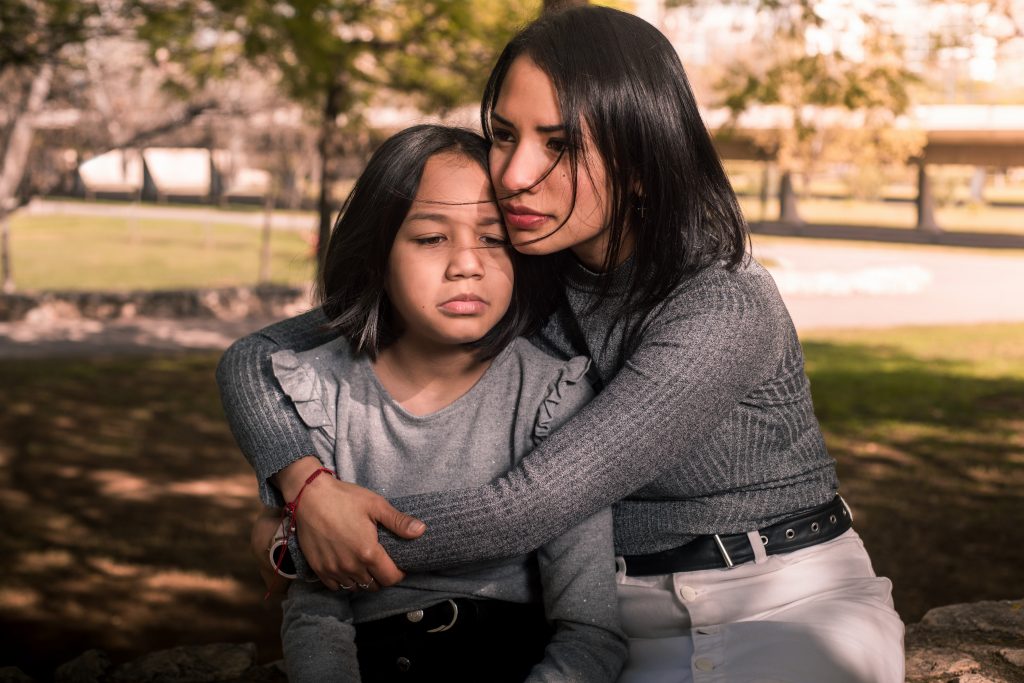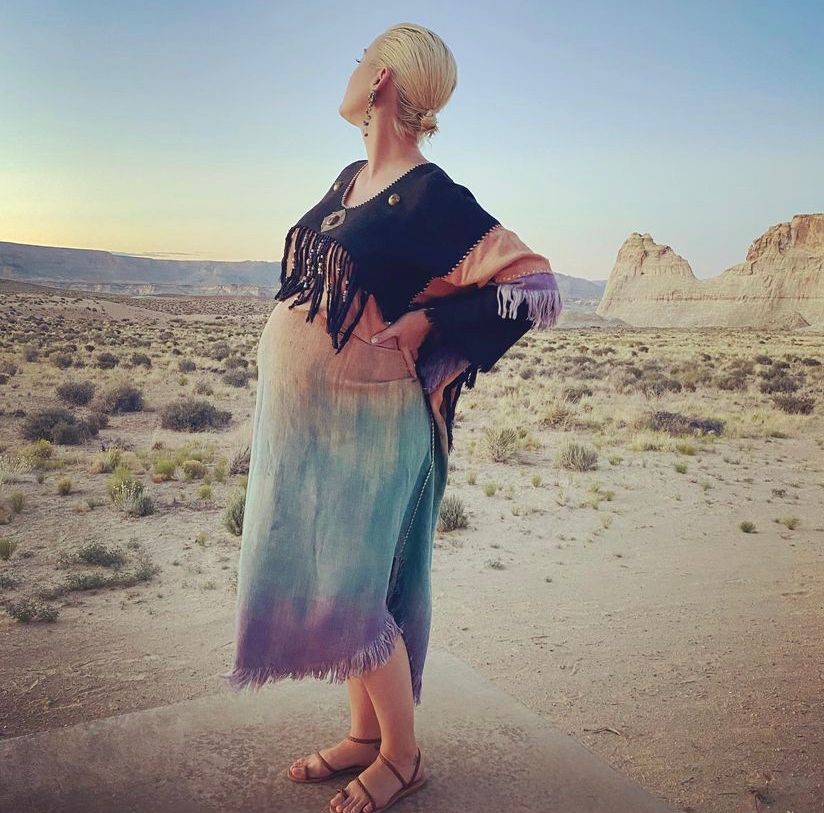What would you do if someone told you today was the last time you would ever see your children? When you’re a parent, it doesn’t matter if your children are 2 or 20; they are always your most precious gifts. You also experience a never-ending roller coaster of emotions, from happiness to fear and everything in between.
Another thing that most parents take for granted is that their children will outlive them. But for some, like the parents of the Uvalde school shooting victims, this wasn’t the case. And it shattered their worlds in an instant.
Parents weren’t the only ones that started fearing the worst. So did kids. The kids who had to get up and go to school the following day, even if they lived across the country. The kids that couldn’t help but wonder if that would happen to them. Or what about the kids that have already experienced gun violence firsthand? How do you help kids cope with something so gut-wrenching and terrifying?
The Uvalde School Shooting
Uvalde, Texas, rests in the Texas Hill Country, roughly 80 miles west of downtown San Antonio. On May 24, 2022, parents sent their kids off to school like they had done every other day that school year. Teachers prepared their classrooms to welcome students to a new day of learning. But this day was different.
Salvador Ramos entered a 4th-grade classroom at Robb Elementary in Uvalde, opened fire, and killed 19 students and 2 teachers. At least another 17 people were injured in the terrifying massacre at the elementary school.
Parents feared the worst as they waited at a rendevous point. Would the kiss and hug they gave their kids that morning before school be their final goodbye? Would it be the last time they held their kids close?
Over the following days, more and more stories came out about the victims and their families. Stories like the 11-year-old that covered herself in her friend’s blood and played dead so she could survive. About the young fourth-grader who pulled his friend under a table covered by a tablecloth and cautioned not to make a sound. They survived, but they witnessed the slaughter of their friends and teachers.
The Scary Reality of School Shootings in the US
Pull up a list of school shootings in the US over the past 50 years, and it’s staggering. No matter the reason for the high number of mass shootings in schools, the scary truth is that it’s a reality.
The Uvalde school shooting was the 27th school shooting in 2022. According to Education Week, there have been 119 school shootings since 2018. Sadly, gun violence is fast becoming a major cause of death among the nation’s children.
The Shooting at Robb Elementary Affected Families Across the Nation
Moms worldwide that heard of the school shooting hugged their babies tighter, sobbed in pain, and felt a deep sadness and fear. They also started to think of the worst, most unspeakable truth — if it happened in Uvalde, it could happen in their hometown.
What if this happened at their kids’ school? Unfortunately, kids are wondering the same thing, and it’s causing stress, anxiety, and fear for many.
How do you come back from something like this? How do you help kids cope with gun violence? Not just when they’re victims, but the kids that also hear about it on the news and blasted all over social media? The children who start to fear going to school because they wonder if someone with a gun will get into their classroom.
And how do you cope as parents when anxiety and fear take over? How do you stay calm when you dread putting your babies on the school bus each morning?
8 Ways to Help Children Cope with Gun Violence
If your children are scared about a shooting at their school or one in their community, or a shooting across the country, they’ll look to you for assurance. Your kids count on you to keep them safe, which means easing fears and anxieties about traumatic events.
Here are 8 vital ways to help your children cope with gun violence.
1. Acknowledge Your Kid’s Fears and Anxieties
People are often quick to point out that “kids are resilient” or “they get over things fast.” Others assume that kids, especially young children, don’t understand the gravity of certain events and, therefore, aren’t affected by them.
Sure, you’ll have a few kids who might appear unphased, embracing an “it isn’t going to happen to me” mentality. But, the reality is that devastating events can make a major impact, even if it isn’t immediately apparent. In other words, even if it seems like your kids are fine following an inconceivable event, something could be bubbling up under the surface.
If your kids start to express worry or fear, it’s critical to acknowledge their feelings. When you use phrases like, “It’s okay, you’re going to be fine,” or “That happened far away,” you diminish your kid’s feelings. Of course, you’re trying to ease their fears, but brushing them off isn’t the way.
Instead, recognize your kid’s anxiety. You can say something like, “I know you’re scared and worried. I am too. What happened was awful.” Then, proceed to let your child talk about how they feel.

2. Take Time to Talk with Your Children
As your child expresses their feelings, listen. Let them verbalize everything they need to get out in the open. Give them opportunities to ask questions. Share your own feelings about the situation with them too.
When you let your kids know that you also have similar feelings about a situation, it helps validate their emotions. They understand that what they’re feeling isn’t wrong or silly; it’s normal.
3. Answer Their Questions…But Monitor Their Exposure to the Information
Your children will likely have a ton of questions about what happened. Some of them will be almost impossible to answer, like, “Why did someone do this? Why did someone bust into a school and kill children?” And one of the most difficult, heartbreaking questions of all, “Mom, is that going to happen at my school? Am I safe?”
Answer their questions as best (and as honestly) as you can. At the same time, offer as much reassurance as you can. Older kids will especially want to look to alternate sources for information, like the news or social media. They’re curious and trying to learn as much as they can about the incident.
It’s important to monitor their exposure. Have them take some breaks every now and then, so they aren’t over-exposed to the news. But, also be prepared to answer their questions, so they get an accurate story.
If you don’t, kids will fill in the blanks themselves, which will often lead them to worst-case scenarios. So, don’t leave things up to their imaginations.

4. Create a Safe Place at Home
Unfortunately, as a human being, you can only control so much of what’s around you (mainly yourself). As much as you want to make everything safe for your children, you can’t guarantee that everywhere they go is 100% safe.
However, what you can do is make your home as safe as possible. Let your children know that home is a sanctuary. It’s a place they can always come to and find a peaceful haven. Part of creating a safe home is making yourself open and available to your children.
Physical security, like four walls and a roof, is important. But emotional security, in the form of love, compassion, and understanding, is vital.
5. Know the Signs of Stress and Anxiety After a Traumatic Event
Does your child seem fine following the school shooting? Maybe you assume they’re too young to fully grasp the concept of gun violence and what happened. But don’t move on too quickly. Stay alert during the weeks following a tragic event in case your children start showing signs of stress or anxiety.
Look for changes in mood, sleep patterns, appetite, or concentration. Your kids might start struggling with schoolwork or not enjoy some of the things they used to. Many of these actions can be normal and typically begin to fade in about 4 to 6 weeks.
However, it’s crucial that you always stay aware and provide ways for your kids to express their feelings. For some, it could be by writing in a journal, playing music, or painting.

6. Check In with Your Children
Following an atrocious event like the Uvalde school shooting, make sure to check in with your kids. Don’t leave it up to your children to tell you when they’re scared or upset. Kids are wrestling with some hefty emotions that they might not yet understand. Therefore, they may assume they aren’t supposed to be feeling these things and shut down.
Make a point to ask your kids how they’re doing. Tell them how you feel, which can encourage them to open up more about their feelings.
7. Make Sure You’re Okay
It’s a simple thought but true; if you don’t take care of yourself, how can you fully take care of others? Your main focus might be on how your children cope with gun violence and their emotions. But, as a result, you can push your own feelings to the side, bottling them up to “deal with later.”
Take time to recognize and acknowledge your own feelings. Find someone to talk to and share your anxieties with. Remember to make your own well-being a priority.

8. Get Professional Help
Finally, never assume you and your family don’t need professional help to work through a tragedy. Even if your kids were not directly involved in a school shooting, for many, hearing about the event can make a significant impact.
If your child (or you) is still struggling to cope several weeks after the event, it’s worth looking into counseling. Putting it off or underestimating how you’ve been affected can cause more damage in the long run. There’s nothing wrong with asking for help. It’s not a sign of weakness; it’s a sign of strength.
Dealing with Gun Violence as a Parent Is Vital to Helping Kids Cope
The horrific events in Uvalde shook parents everywhere to the core. When you heard the news, it cut you to the bone and broke your heart no matter where you were. The reality hit fast, and it hit hard. It was impossible not to imagine your children in the same situation. The unthinkable can happen to anyone, and it can happen anywhere.
When your kids are wrestling with their emotions and thoughts about gun violence, they’ll look to you first. It’s important to acknowledge your own feelings about gun violence and the fears you have about it. When you can recognize and deal with your own stress and anxiousness about the situation, you’ll be more prepared to help your children navigate through their feelings.
You can use the above tips for helping kids cope with gun violence for yourself. Always keep an open line of communication with your kids so they know they can come to you anytime about anything. When your kids want to talk, stop everything you’re doing and listen. Be cautious of minimizing their feelings and fears, and instead, let them know you hear them.
You Are Your Child’s Number One Advocate
If your kids express fears after the Uvalde school shooting or any other traumatic event, remember that you’re their number one advocate. Help them as much as you can, and if they need more than you can give, seek guidance from a professional. Everyone will respond to tragedy in different ways, so if you have multiple children, keep in mind that each might cope differently.
Reaching out to other parents that are going through similar challenges and struggles can also be beneficial. If you need to connect with others, make sure to check out our Mummyfique communities. You’re not alone, moms.

Stacy Randall
Stacy Randall is a former early childhood educator living in NOLA with her husband, son, and two fur babies. She spends her time writing, going places with her family, and teaching theatre to energetic 5-12 year olds.














